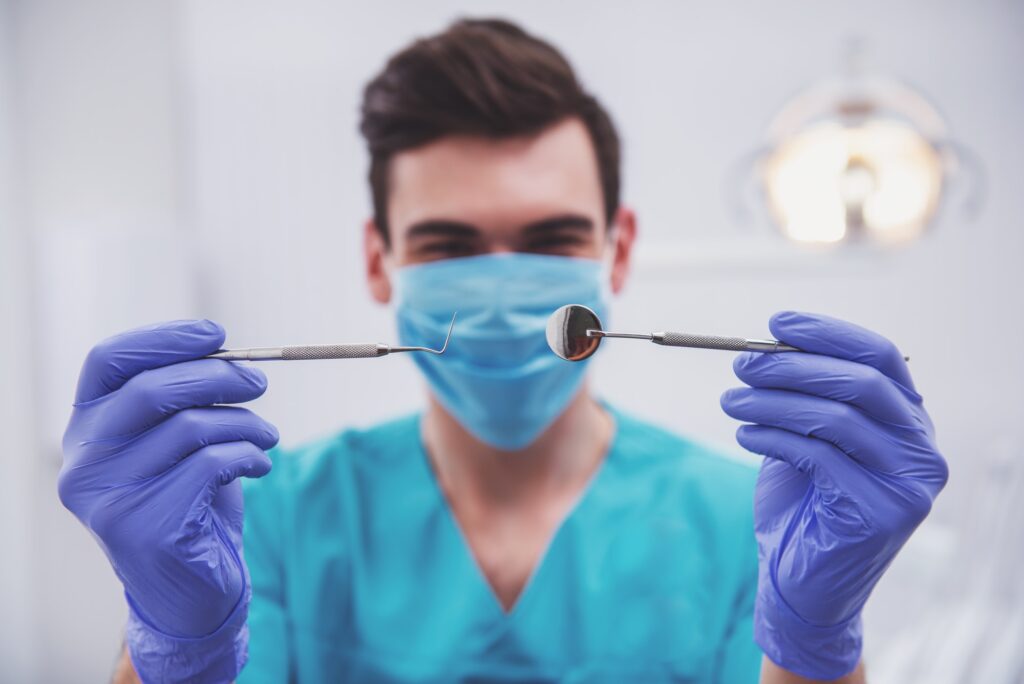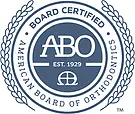Have you ever wondered why your dentist might send you to an orthodontist for some treatments? It’s key to see the differences between these two dental pros for your oral care. Both focus on keeping your mouth healthy, but orthodontists are experts in teeth straightening and treating how your teeth fit together.
This split in expertise means choosing the right one for your needs is more than picking between check-ups or fillings.
Key Takeaways
- Certain dental issues require specialized attention beyond general dental care.
- Dentists address a broad spectrum of oral health concerns including cavities, extractions, and cosmetic procedures.
- Orthodontists undergo 24 to 36 months of additional training in teeth alignment and jaw correction.
- Membership in the American Association of Orthodontists (AAO) indicates highly specialized training in orthodontic services.
- Choosing between a dentist and an orthodontist can impact the effectiveness of your treatment plan.
Overview of Dentists and Orthodontists
Dentists and orthodontists are key for keeping our mouths healthy. They have different jobs but work together for our oral health.
Dentists know a lot about all kinds of dental care. They focus on keeping teeth and gums healthy. They fix cavities, treat gum problems, and handle other common dental needs. Dentists also do cleanings, fill teeth, pull them out when needed, and make your smile better with some cosmetic work.
Orthodontists are experts in making sure teeth and jaws are lined up correctly. They have extra training after dental school to be specialists. They fix problems like overbites or underbites. Orthodontists use braces and aligners to straighten teeth and improve your bite.
So, both dentists and orthodontists are important. Dentists focus on general health, and orthodontists make sure your teeth are straight. Together, they keep your mouth working well and looking good.
Education and Training Differences
The journey to becoming an orthodontist is quite different from that of a dentist. It includes special steps and focused training. Both professionals start by attending dental school. Here, they study the basics of oral health, body anatomy, and dental care for a full four years.
After graduating from dental school, the paths change. Orthodontists take on more focused education. They join special dental programs that stress advanced orthodontic studies. These programs teach them complex topics like how faces grow, the physics of moving teeth, and high-tech ways to diagnose dental issues.
One key step in becoming an orthodontist is the residency. It’s a program that lasts two to three years. During this time, new orthodontists work closely with experienced ones. They refine their skills in aligning teeth and jaws. This unique training is what makes a dentist become an expert in braces and other orthodontic treatments.
To sum it up, dentists and orthodontists begin with similar schooling. But, orthodontists build on that with more focused training. Their journey includes specialized dental programs and a crucial residency. This extra training prepares them for their specific job of fixing teeth and jaw alignment issues.
Primary Responsibilities of a Dentist
Dentists are key in keeping our mouths healthy and fixing dental issues. They mainly work on treating tooth decay. This means they not only fix cavities but also teach how to prevent them. It’s vital to have regular check-ups to catch problems early.
Another big task for dentists is extracting teeth when needed. They do this if a tooth is too damaged or decayed to save. Dentists also do root canals to save teeth. They clean out the infected area and seal it to keep the tooth.
Dentists are also important for managing gum diseases. They treat issues like gingivitis and periodontitis. If these aren’t treated, they can lead to serious problems. They use procedures like scaling and root planing to fight plaque and tartar buildup.
Besides that, dentists do a lot of work to make our smiles look better. They add dental crowns, bridges, and veneers to fix or improve teeth. They also offer teeth whitening to make smiles brighter.
Overall, dentists are crucial for our oral health. They help fight dental issues and encourage good hygiene habits.
Primary Responsibilities of an Orthodontist
Orthodontists keep your mouth healthy by fixing how your teeth fit together and your bite. They use different treatments to straighten teeth that are out of place, including ones that are crowded or crooked. They also handle bite problems, like when your top or bottom teeth don’t line up right.
Orthodontists often put on braces and aligners for their patients. These help move teeth slowly to where they should be.
They also look into things like temporomandibular disorders (TMD), which can cause jaw pain. By creating care plans, they help reduce the hurt and make the jaw work better. Their goal is to make sure your teeth and jaw work well and look good, which helps keep your whole mouth healthy.
What is an orthodontist vs dentist?
An orthodontist and a dentist focus on different things. Dentists and orthodontists are two main types of dental professionals. They both work to make people’s mouths healthier but in different ways.
a
Dentists do a lot. They clean teeth, do check-ups, fill cavities, and even handle root canals. They keep your mouth and gums healthy. Dentists work on preventing and fixing many dental issues.
Orthodontists are specialists who have even more training. They fix how your teeth and face look. They use braces and other tools to make your teeth and jaws align better. This not only makes your smile look nice but also helps you chew properly.
While some dentists can do orthodontic work, orthodontists are really the experts here. Not all dentists can be orthodontists because it needs special training.
So, which one you choose depends on what you need. For regular dental health and care, go to a dentist. If you need your teeth or jaw alignment fixed, see an orthodontist.
Why You Might Need an Orthodontist Over a Dentist
Regular dental care is crucial for keeping teeth healthy. But, some issues need an orthodontist’s expert help. For problems like fixing how your teeth come together or aligning your jaw, an orthodontist is vital.
Orthodontists get extra education after finishing dental school. This focuses on solving harder dental issues. They know how to make a special plan just for you. Their care includes:
- Diagnosing and treating teeth that don’t line up right and fixing bites.
- Using high-level methods to make sure your jaw works well and is in the right place.
- They use the latest technology to make careful tweaks and keep track of your progress.
Seeing an orthodontist for these unique problems can greatly improve how your smile looks and works. Their special care brings about the best outcomes, which regular dentists can’t always provide.
Conclusion
Knowing the difference between dentists and orthodontists is key. Understanding their roles helps you choose the right care for your oral health. Dentists look after general needs like cleanings and fillings. They are crucial for basic dental care.
Orthodontists, on the other hand, focus on straightening teeth and fixing jaw alignment. They make sure your teeth and jaws work well both in looks and function. Their work improves how you chew and talk.
Deciding between a dentist and an orthodontist depends on your needs. Regular visits to the dentist keep your mouth healthy. But, for issues like braces, you need to see an orthodontist. It’s important to know when to see each professional for the best dental care.








